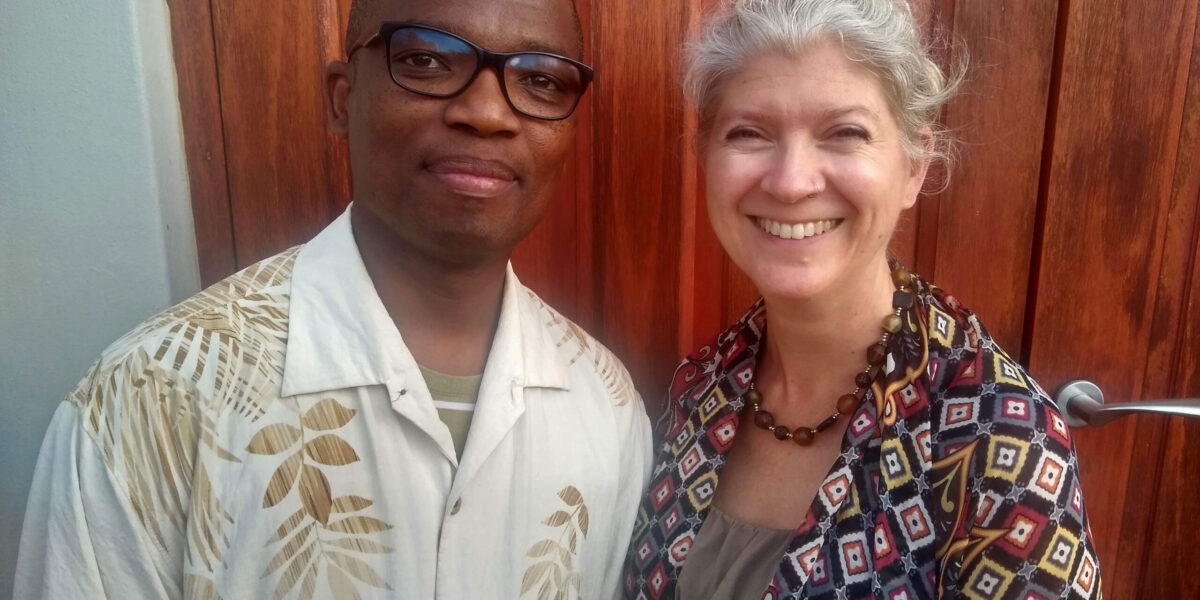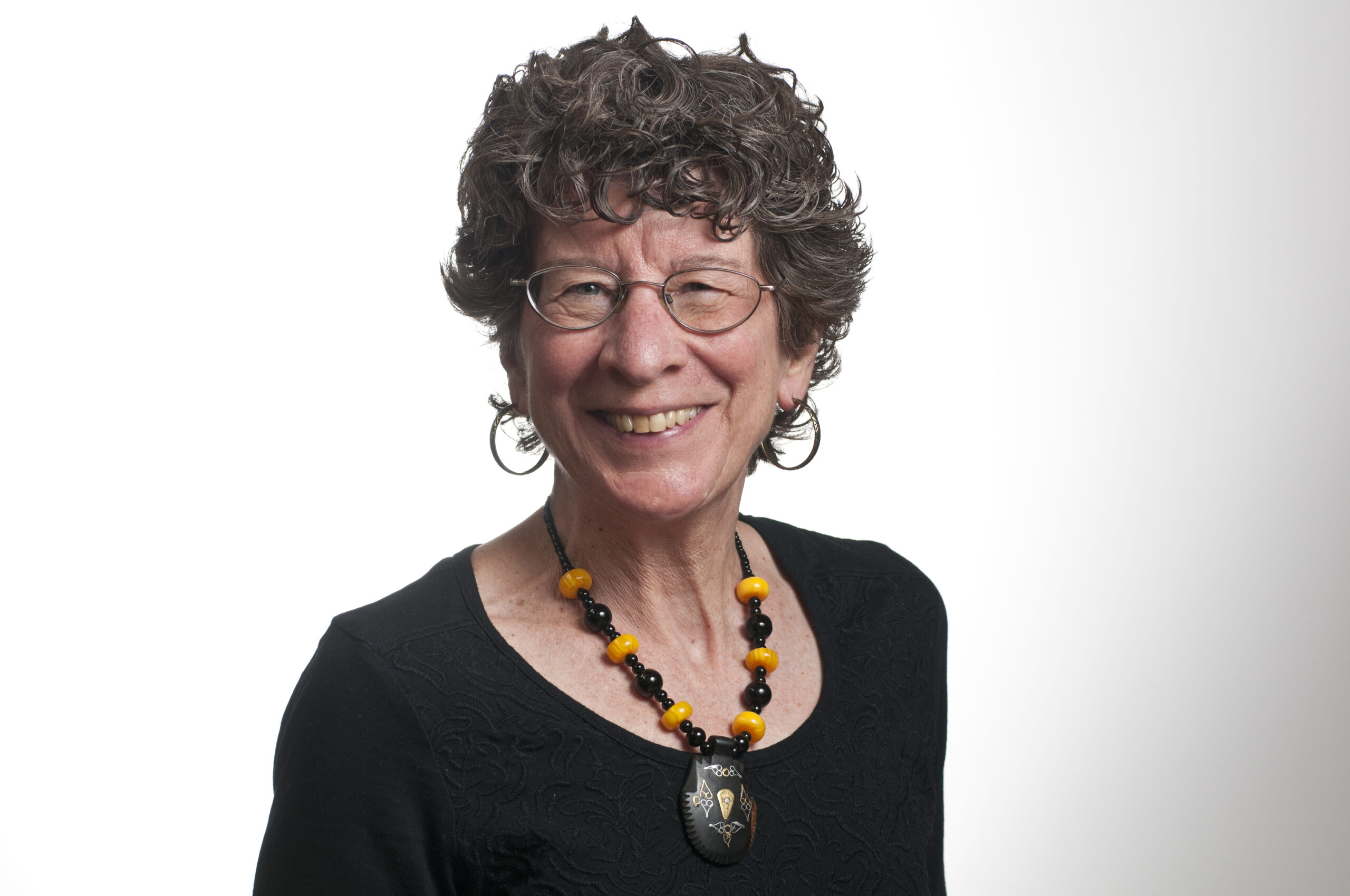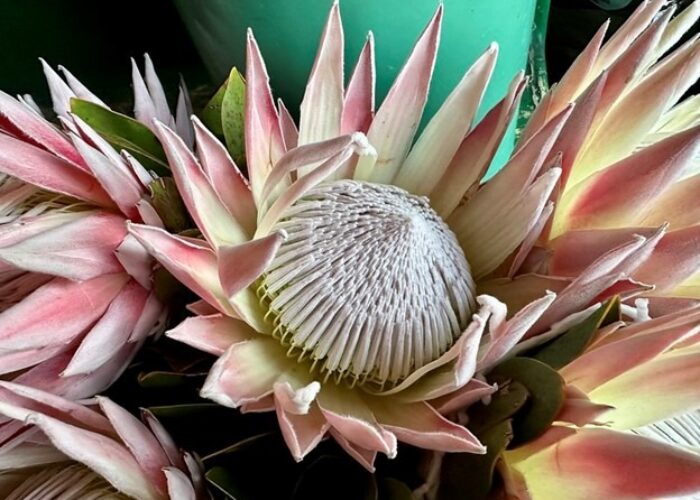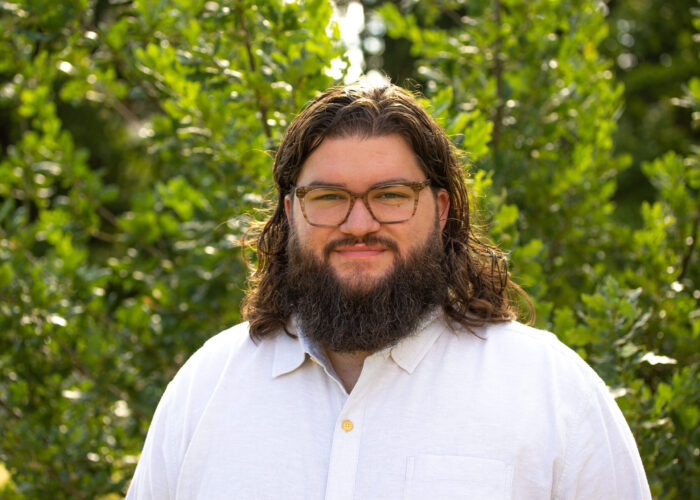Kathryn Smith Derksen brought the many passions of her life together in a glorious musical mosaic, Yet I will rejoice!, presented Nov. 1, 2, and 24 in Somerset West, near Cape Town, South Africa.
"The purpose of this concert was to provide a context using music and personal storytelling to confront the subjects of identity and heritage, race and struggle, faith and authentic discipleship," Smith Derksen said.
This year’s concert was the third one Smith Derksen and her husband, Dan, organized as a benefit for the SADRA Conflict Transformation program where they served with Mennonite Mission Network from 2016-2020.
The idea for the concert solidified when Kathryn Smith Derksen participated in a music symposium focusing on diversity at Stellenbosch University. Martin Berger, director of the university’s choral conducting program, who led the symposium, said, "[Each person needs] a strong sense of self to engage globally; to know who you are, you have to know where you come from."
The concert took its name from Smith Derksen’s piece based on Habakkuk, "Though the fig tree does not bud and … though there are no cattle in the stalls, yet I will rejoice in the Lord." She wrote Yet I will rejoice! as a response to the world’s pain and suffering.
As young newlyweds, Dan and Kathryn Smith Derksen worked with religious leaders in Uganda to advocate for amnesty for the Lord’s Resistance Army and return abducted child soldiers to their home communities. In this heart-breaking context, the Acholi people told the Smith Derksens that the Old Testament felt like their personal story. "They actually sing the Book of Job when processing to weddings," Kathryn Smith Derksen said. "To be able to say, ‘God is good’ in the face of evil is not something done lightly."
Music performed in the Yet I will rejoice! concert originated in Africa and Europe and spanned six centuries, including instrumental pieces for the viola da gamba. These instruments, developed in the 15th-century, look like cellos and are Smith Derksen’s instrument of choice. One young person of color commented on hearing the intimate Dutch music from 300 years ago. He said it helped him picture the colonizers for the first time "as a group of people who had their own music, their families, and their way of life — people who just came here to start a new life."
Smith Derksen said that this was just one moment of transformation among many during the months of work that shaped the concert.
Twenty-first century pieces included compositions by Smith Derksen and local Xhosa composer, Vusumzi Tsham. In Smith Derksen’s arrangement of the African-American spiritual, Sometimes I feel like a motherless child, Timothy Visser, whose family’s land was taken by Cecil Rhodes, sang a moving solo. It intertwined with the rap poetry of Chadwin Nel, a SADRA-trained peer mediator. Rhodes, a 19th-century English mining magnate, founded and controlled the British South Africa Company that exploited large tracts of land in southern Africa.
Tsham’s song, Siyabonga Madiba, praises Nelson Mandela in isiXhosa, a major African language. "You led the way; you overcame with peace and love. We say, ‘Viva Mandela!’"
Smith Derksen acknowledged that some choir members had difficulty singing about Mandela as "the hero of heroes," particularly Afrikaners. Afrikaners are people of Dutch/German descent who colonized South Africa and established the system of apartheid that oppressed many of the choir members’ families. In the program, the song that immediately followed the ode to Mandela was Karoonag, an Afrikaans lullaby praising the natural beauty of South Africa. It speaks of how land becomes home and comfort for all its inhabitants, both colonizers and native-born.
For Smith Derksen, the concert’s climax was Horizons, a six-part a cappella piece by contemporary South African composer, Peter Louis Van Dijk. This piece tells the story of the Dutch colonizers’ arrival from the point of view of the San people.
"It was particularly poignant being sung by White South Africans accepting their ancestors’ complicity and passionately joining their voices with the voices of their compatriots of color, in the final words, ‘and then they killed us,’" Smith Derksen said. "I wonder when the day will come when Americans sing such truth on our own shores."
The concert ended with Wana Baraka, a Kenyan Swahili blessing arranged by Shawn Kirchner, a friend of the Smith Derksens.
"We sing this blessing from Jesus in one of the major languages of the continent, reminding us that we are all connected, even if the stories are difficult to tell or listen to," Smith Derksen said. "Our love for Africa and our recognition that we need each other will help us move forward."





